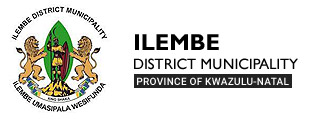
THE 1.1 MILLION HIV TREATMENT GAP CAMPAIGN CLOSES AT CHIEF ALBERT LUTHULI CAMPUS
The iLembe District’s “Closing the 1.1 Million HIV Treatment Gap” campaign took place today at the Umfolozi TVET College – Chief Albert Luthuli Campus in KwaDukuza.
The campaign’s goal is to identify and support the 1.1 million people living with HIV who know their status but aren’t on treatment yet, or who have stopped taking it. This effort addresses a critical gap in the country’s HIV response. The day began with a briefing meeting to ensure that everyone involved was aligned, informed, and prepared before the main event.
Welcoming everyone to the event, Campus Manager Mr. Sanjith Hooblal said it was fitting that Umfolozi was chosen as the host since the event aligns with the college’s motto, “let the future be known.”
“To let the future be known, it is important to ensure you have a future first. This starts by taking care of ourselves and taking our treatment,” he said.
Outlining the purpose of the day and the “Closing the 1.1 Million HIV Treatment Gap” report, Velaphi Bhengu, the iLembe District health department’s primary health care supervisor and operational manager for KwaDukuza, urged students to finish their HIV and TB treatment once they start it. He also stated that the department will investigate installing an adolescent and youth-friendly service at the Groutville Clinic where young people can access services without restraint.
The South African government, in partnership with the World Health Organization (WHO), UNAIDS, and other stakeholders, launched the campaign in February of this year to accelerate efforts toward achieving the 95-95-95 HIV targets.
Bhengu shared details on how far the KwaDukuza subdistrict is in terms of closing the treatment gap, stating that there were 37,574 people on treatment in February 2025. The subdistrict was given a target of 40,838 people by December 2025. The current number is 37,536, making the gap 3,264.
“We are here to find out today what is chasing people, especially young people, away from clinics and keeping them from accessing treatment,” he said. “The department has come up with reasons why we are regressing in terms of numbers and why people are defaulting on treatment. These include stigma, discrimination, medication side-effects, people moving away, the treatment patients receive in clinics, and not enough knowledge being shared with patients on how the treatment works.”
His Worship the Mayor, Councillor Thobani Shandu, delivered the keynote address, presenting statistics shared at the District Aids Council, which he chairs, earlier this week.
“In this district, we have children as young as ten, 15, and 19 who are pregnant, and some are infected with the virus. It is painful to see parents collect college degrees on graduation day because their child is no longer alive,” he said.
Mayor Shandu urged people not to be ashamed of taking treatments.
“I know some people in Mandeni who would go collect treatment in Eshowe because of shame. Being ashamed of your own health and your life does not make sense. Some of us cannot afford to do that. We don’t come from the same families; some of us come from really struggling homes who are depending on us to make something of ourselves and to uplift our homes,” said the District Mayor.
Ending his address, Mayor Shandu urged the students to do their part so that the government can continue to do its part.
“We have the Siyaya Emhlangeni camp starting today as part of Operation Siyaya eMhlangeni in preparation for Umkhosi womHlanga 2025, and the parade is this Saturday. The government is doing its part in addressing social ills and preserving culture; you must do yours,” said Cllr Shandu.





